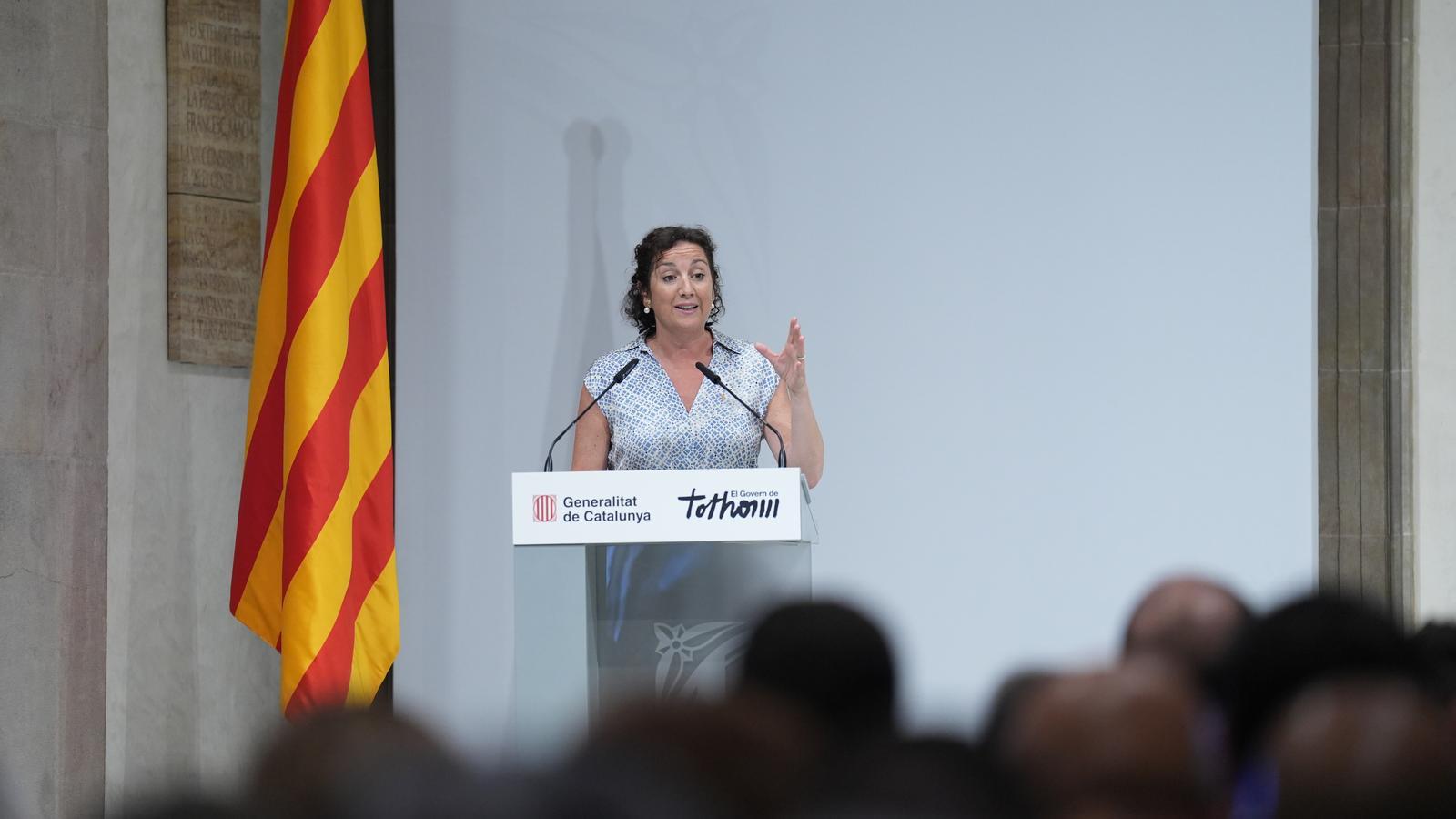The Catalan Treasury will not intervene in the management of personal income tax until 2028.
The investiture agreement between the PSC and ERC was scheduled to begin in 2026, but now the technical roadmap for the new ATC postpones it.


BarcelonaThe investiture pact between the PSC and ERC stipulated that the Catalan Tax Agency (ATC) would begin collecting personal income tax starting in 2026. However, as the Catalan government has studied what changes would be necessary to achieve this goal, expectations of being able to meet this deadline have diminished. Now, the master plan commissioned by Indra to specify a roadmap for the future Catalan Treasury sets new dates that fall far short of the promises. Based on a progressive increase in resources and personnel, it proposes that the ATC will be in a position to assist citizens in the income tax campaign in 2027, and that by 2028 it will already be involved in "the tax implementation of certain functions" related to this tax. In other words, it proposes that it begin to perform some functions related to its management, but it also doesn't mention all the collections.
In statements to Efe this Thursday, the Minister of Economy, Alícia Romero, advocated moving forward "little by little" in the management of personal income tax, but in a "solid and secure" manner, to avoid "tax fraud leaks." In parallel, the development of a "proprietary" technological platform is planned—despite the fact that the use of the state Treasury's software had been proposed—and the deployment of the two new ATC bodies (of tax professionals and computer scientists) that the government has agreed upon with the Republicans.
The report arrives just on the day the deadline by which the Catalan executive committed to present it expires, after key issues regarding the new financing, such as the ordinality or the timeline for the Catalan Treasury to assume the collection of all taxes, remained unresolved in the Bilateral Commission between the State and the Generalitat on July 14. According to the Department of Economy, the master plan foresees the need to amend the Organic Law on the Financing of the Autonomous Communities and the Lofca (Local Tax Act) in the Congress of Deputies so that all these changes can be implemented. The law on the transfer of state taxes to Catalonia, which should assign jurisdiction over personal income tax to the Generalitat, is also needed. This will depend on the majorities that the Socialists and ERC are able to secure in the Spanish chamber. where Compromís or the Chunta Aragonesista do not guarantee their support And Junts warns that it will not endorse a "one-size-fits-all." Meanwhile, negotiations continue with the Ministry of Finance on the details of the unique financing model, which must also be reviewed by the Fiscal and Financial Policy Council.
Esquerra accepts the new date
The outcome of these negotiations is what worries Esquerra, which downplays the fact that it has now been postponed until 2028. Party sources validate the new timeline, arguing that it is the result of a technical assessment, and point out that the important thing is the outcome of the talks to reform these laws. Without that, they insist, everything else is worthless. also the decree law agreed with the executive to modify the ATC regulation and which will be approved at the first executive council meeting after the holidays. ERC leader Oriol Junqueras on Monday criticized the Minister of Finance, María Jesús Montero, for the poor course of the negotiations, arguing that if she doesn't give in to Catalan pressure, it's to avoid harming her future as the Socialist candidate in the Andalusian elections. Government spokesperson and minister Silvia Paneque took a back seat to these criticisms, stating that "it wouldn't be fair to single out just one person" and that there is a lot of "political noise" surrounding this issue. A day later, Prime Minister Salvador Illa did close ranks with the Spanish minister and vice president, whom he described as a "key player" in fulfilling the financing agreement.
These statements have not pleased Esquerra, which is urging Isla to clarify which side of the table he wants to be on in the negotiations with Madrid. Currently, one of the points of contention between the Catalan government and the Spanish state is the principle of ordinality, which both the PSC and Esquerra defend. In contrast, the Spanish government has avoided embracing it, both during and after the bilateral negotiations. Among the issues pending clarification are also the question of how much Catalonia should contribute to inter-territorial solidarity and state expenditures.
The "complexity" of the process
Despite having reiterated for months that it would meet the deadlines of the investiture agreement, the Catalan government also publicly admitted the "complexity" of establishing the new Catalan Treasury, both in terms of staffing and the procedures for accessing the data currently held by the AEAT. Sources consulted by this newspaper already indicated that it was not feasible to collect personal income tax in 2026. and that, at the very least, it will take between three and five years for the entity to be able to replace the state entity in Catalonia.
The numbers illustrate the magnitude of the undertaking: the ATC currently manages €5 billion in revenue, compared to the €30 billion it will eventually have to assume. For its part, the AEAT has 1,500 IT staff. The ATC currently has none. In an attempt to organize the reforms that need to be implemented to bring the ATC up to date, The Government has created a new commissioner for the Catalan Treasury, headed by tax management expert Santiago Ramón—who has a technical background—who reports directly to the Minister of Economy, Alícia Romero. He will be accompanied by an advisory board of experts in communication, technology, and tax management, which will meet once a month and is still pending appointment.
Reinforcing agents
The master plan announced this Thursday outlines the gradual incorporation of the Tax Agency (ATC) into the income tax campaign, which is currently managed by the AEAT (Spanish Tax Agency). In 2026, it will not yet participate in tax management, but it will provide assistance and information, adding 400 additional agents (this year another 102 have already been added for these tasks). The following year, in 2027, it will assume full assistance to the 360,000 Catalan taxpayers, requiring the "temporary" incorporation of more than 700 agents and the opening of temporary offices. Throughout these campaigns, the ATC's corporate identity will be incorporated into the documentation, which can be signed with the Catalan Government's idCat Mobile as early as 2026. To fully assume a role in tax management in 2028, it will be necessary to incorporate structural personnel.
The information provided by the Ministry of Economy, which has not made public the document provided by Indra, does not specify the degree of autonomy that the ATC will maintain from the AEAT at this stage. It only states that the ATC "will collaborate in the application of taxes and the review of reports."
